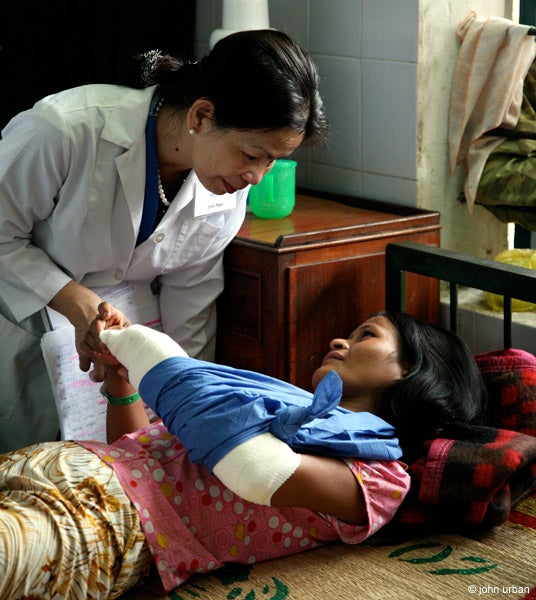Caring for a friend or family member who is ill can be quite stressful. We talk about caregiver strain and discuss ways to avoid caregivers from burning out.
Featured in this Show
-
Caregivers Should Seek Support To Avoid Burning Out, Expert Says
Caregivers should find support before becoming overwhelmed by the burdens associated with taking care of a patient with a chronic illness, according to a human development and family studies expert.
“You have to take care of yourself to take of others,” said Kristin Litzelman, a professor at the University of Wisconsin-Madison. “If you’re not taking care of yourself, there’s no way you can provide help to someone else. You won’t have the physical strength or the emotional strength.”
Litzelman researches the role of stress in health outcomes for caregivers, such as their quality of life and mental health. She also serves as a state specialist of family and financial well-being through UW-Extension.
With an aging population, the number of caregivers in the U.S. is growing. Thirty-six percent of U.S. adults said they served as an unpaid caregiver to an adult relative or friend over the previous 12 months, up from 27 percent in 2010, according to a 2015 study from Pew Research Center.
Caregivers face a variety of challenges that can cause strain, such as the physical tasks related to caregiving and financial difficulties, she said. Women, lower-income individuals and primary caregivers tend to experience the highest levels of stress.
“All the different types of caregiving are different, but they all come together in the fact that they’re stressful and that caregivers need support,” Litzelman said.
Cancer, for example, impacts the entire family whether on an emotion or financial scale. Treatment schedules can be very intensive, Litzelman said. People often have to take off work to travel long distances to receive treatment.
“Family caregivers don’t really think of themselves as caregivers until they’re at the point where they’re really stressed,” Litzelman said.
Family members often see helping their relatives as an act of kindness, but it’s important that they acknowledge that they’re also taking on a new role as a caregiver, she said.
“One of the key findings from my research is that it’s not really caregiving itself that is problematic. There’s a whole diversity in who caregivers are. It’s really the stress that comes from caregiving,” Litzelman said.
How a caregiver perceives their role affects their overall mood, she said. Often, caregivers who don’t have support from others feel like their circumstances are out of their control and they become overwhelmed, which in turn affects the patient.
“In fact, some of my research shows when the caregiver shows depressive symptoms, the person they’re caring for can be four times as likely to become depressed themselves,” Litzelman said.
Some caregivers might not know what kind of support they need, she said. They might even feel guilty or selfish for worrying about themselves.
“The best thing caregivers can get in terms of support is emotional support,” Litzelman said.
Loved ones of caregivers should let them know they’re there for them early, she said. Family and friends can also offer to help with household tasks such as doing the dishes and grocery shopping. Litzelman also encourages caregivers to exercise.
“It’s a hard job no matter if you’re a family caregiver or professional caregiver to come in and give those services, to provide the physical support or give the emotional support,” she said.
Caregivers should look for support networks in their area, Litzelman said. The Caregiver Action Network, caregiver.org and AARP offer more information.
Episode Credits
- Larry Meiller Host
- L. Malik Anderson Producer
- Kristin Litzelman Ph.D. Guest
Wisconsin Public Radio, © Copyright 2025, Board of Regents of the University of Wisconsin System and Wisconsin Educational Communications Board.




